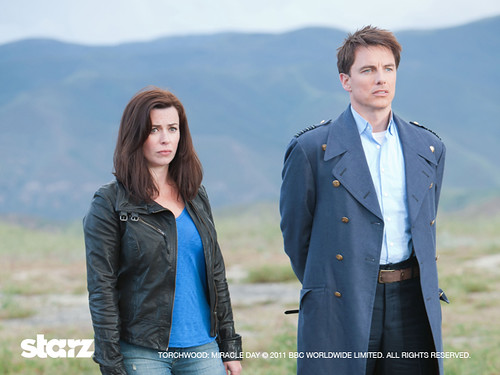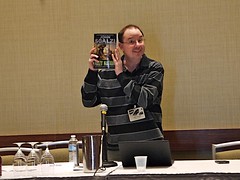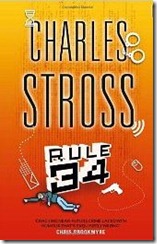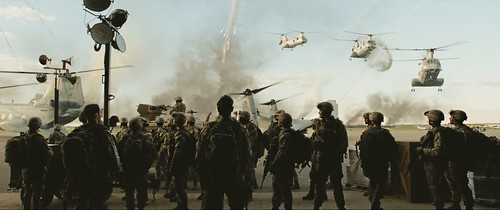Further to all the discussion that happened on this blog on BBC’s Outcasts, show creator Ben Richards kindly agreed to take some questions from me (and various fans who submitted them online). He’s had various commitments holding him up and sends apologies for the delay, but below we have his views on the cancellation, the way the BBC handled it, the audience reaction, sci-fi and its fanbase, the show scheduling and more. Hope you find it enlightening – was v. interesting reading for me.
The “big news” is that Ben’s in discussions with Kudos on a way to resolve the series in a different format! More below.
If you want a quick recap of all the discussion that’s happened here, you can read my other posts on Outcasts here to understand where I came from with most of the questions:
New Sci-Fi – Outcasts
Outcasts – mid-season view
Will there be an Outcasts series 2
How to protest the Outcasts cancellation
…and more generally on the Beeb:
Why do ratings matter for the BBC?
Is the BBC good value for money?
Now, to the interview!
The show was written for a “mainstream” audience but didn’t get mainstream ratings. What would these have looked like and how far off were you?
We would probably have been OK if the unofficial overnights had stayed between 4 and 5 m but there is no hard and fast rule. Once we dropped into the low 3s though I knew we were in trouble.
Given the scheduling issues, why weren’t the iPlayer ratings taken into consideration when evaluating the show for renewal (or did it not make a difference?) – the show was cancelled before the show was taken off iPlayer and if the traffic and comments on my blog were any reflection people were watching long after the finale aired.
Don’t know the answer to this as I don’t know how they calculate iPlayer.
Given the BBC funding/license fee issues, and the length of production cycles, was the writing on the wall for a big budget series like this before you even went on the air?
I think the problems were more to do with the fact that it was an expensive show that could only find a niche audience and was therefore not right for 9pm BBC1. In many ways I wonder whether any serious sci-fi show can survive in that kind of primetime slot on a mainstream channel. Certainly, many of the big sci-fi shows have very low audiences but they are also expensive. In general though there are many lessons from Outcasts for ambitious dramas that seek to try something new and challenging. Some of these lessons may be a little scary and I really hope that the experience doesn’t discourage people from trying. Although I would add that very few series of this type will ever “catch†in their first episode and if I had one plea as a result of this it is for a little more patience, especially from those who bemoan the presence of too much procedural drama on TV. Sci-fi in particular often takes a little time to establish its place, bed in its characters, develop its themes etc. Many sci-fi shows really get into their stride in Series 2 or even 3. I genuinely believe that a second series of Outcasts would have made it a seminal TV show. I really do believe that and it saddens me that certain people were so anxious to take a gleeful hammer to it as soon as it took its first steps. But I’m also glad there were also many critics and internet sites who saw that and spoke out in its defence. For example, critics like Ian Wylie and sites like Den of Geek and Outpost Skaro were a massive support to us and I’ll always be thankful to them for it.
What was the show’s budget? (Appreciate this one might not be public domain)
Genuinely don’t know. It involved a lot of co-production.
When you conceived the series, did you plan it as a multi-season show (it feels like you were planning 2-3 series ahead)? How did the writing planning/structure work?
Yes it was supposed to be a slow-burner with stories that would span series. We had much more time to plan Series 2 and had some great character and story developments. And while I didn’t especially agree with some of the criticisms of the show with regard to pacing we had obviously learned some lessons from Series 1 and would have addressed certain issues. We followed a conventional British structure of story conferences involving all the writers and producers rather than the American writers room. This was mainly due to time issues.
How has the fan pressure affected the discussions with the BBC about resolving the plotlines from Outcasts? How many complaints have been received, what has it caused the Beeb to consider? Can I publish that you’re in discussion about some kind of web resolution for the series?
The BBC are certainly aware of the fan disappointment at cancellation but I’m also going to step in and defend the Beeb here because they are under a lot of conflicting pressures and we received a lot of support from them. They wanted the show to work and our BBC execs on the show were nothing but sympathetic and good to work with. They were as disappointed as us that the show hadn’t got a bigger audience although as I say I am beginning to think – especially given the number of people who started watching the show from its first minute – that this low figure was perhaps inevitable.
There were a lot of audience complaints at cancellation – not sure of the exact number but it was very satisfying to me that enough people cared enough to take that trouble. You can certainly publish that we are looking for ways to deal with the unanswered questions in other forms. I have a meeting next week about it and we’re really excited to be carrying it forward.
Was the show promoted enough by the Beeb?
Well I loved the trails and I don’t think more promotion would have changed much. The number who actually started watching the show was around 4.5 million. That’s a very low opening for a mainstream show and I suspect has more to do with the genre than the promotion. What it means though is that you can’t afford to lose any viewers (which almost all shows do) and therefore we knew pretty early on that it would struggle in that slot. We then had the misfortune the second night to be up against the extraordinary juggernaut that was Gypsy Weddings and once we had lost a million viewers on a second outing it was clear that things would be very difficult. Having said that, I was extremely pleased with the way the figures held when our slot was moved to late on Sunday night. To be getting around 1.5 million (which doesn’t include catch-up and i-player) in such a late slot on that day of the week was a testimony to the fact that there was a hardcore of viewers and that the show HAD found an audience (albeit a smaller one than we or the BBC would have liked). And – as we have seen from the response after the end of the show – a passionate one. There has to be a place for shows like Outcasts but I don’t know the answer and it is tricky in today’s climate as you have suggested above.
Who thought the show needed to be 8 1hr episodes (beeb vs kudos vs you vs…)? Had it been 13 43 minute episodes (virtually the same amount of television), do you think it would have helped with the pacing issues, and helped with International syndication/sales? Would that have supported renewal?
Yes I definitely think in retrospect the show would have benefited from shorter episodes. A full hour is standard for BBC1 though. Still, I never thought the pacing would be a big issue as I thought there would be enough interest in the themes we were developing and the emotional stories. Episode 5 was possibly the slowest paced but remains one of my favourite episodes because I think it is lyrical and elegiac and moving. But it could have stood being 45 minutes long as could most of the episodes. Eps 1 and 2 might also have worked better as a 90 minute pilot. I’ve said this before in other interviews but I was the lead writer on Spooks for three series and I know a thing or two about how to pace an episode for action and tension. But this was a different type of show and I do find it interesting that some critics will be incredibly tolerant of different pacing but only when the show in question is American.
What have you learnt about sci-fi / sci-fi fans since working on the show? I read somewhere that you conceived it as a pioneer show and the sci-fi was more or less incidental – yet the fan comments I’ve read kind of make me think that the character of your fans here is probably typical – passionate, absorbed, (somewhat) cerebral people…?
I think that’s a really interesting point. It was conceived as a pioneer show and I didn’t have a big sci-fi background. Even as a viewer I was not a great sci-fi addict although I would always put Bladerunner in my top five favourite films. We’ll put aside whether this was a good or bad thing but I never started with the idea of making a sci-fi series but of making a show about humans trying to start again. Another planet just seemed the best way of doing this and was in line with Hawking’s quote about the only way humanity might survive is in “reaching for the starsâ€.
When we started there were obviously some sci-fi fans who hated Outcasts because it didn’t have lasers and buggies and uniforms and battles in space etc. This is not to disparage that kind of show but it certainly wasn’t my particular preference or inspiration in any way. But as time went on it was also the sci-fi fraternity who swung most eloquently to our defence because obviously what we were doing was a particular type of sci-fi with a long tradition and I think people started to see that. We were exploring questions of morality and human identity and the possibilities of second chances. There were those who didn’t have the patience to see this though and that’s their right of course, people watch TV for different reasons, and I understand that it wasn’t going to please everybody. But I was glad that those who stuck with it saw what we were trying to do and responded well to it. Many sci-fi oriented internet sites gave us our most positive, thoughtful and considered criticism. And even when they weren’t always praising everything, they at least had the courtesy and respect to engage properly with the show rather than just giving a dismissive sneer or flip putdown. If anything fills me with a kind of existential angst it is that kind of carelessly self-satisfied negativity. I hate it even when it is not directed at me and in any field. I just think it is a form of semi-neurotic bullying and I despise those who choose it as their tone. But I came out of this with a real respect for those sci-fi fans – often derided as geeks and obsessives – who took the trouble to give a balanced and honest appraisal of the show and who appreciated it.
We made choices with Outcasts. We chose not to camp it up, we chose to take our subject seriously. That may have lost us some support I guess but I’m really glad that we did that. I’m a writer who likes humour as well and that perhaps got lost a little along the way but I’m still glad we didn’t go down the road of pastiche and irony and sending up our world. And there’s a significant sector of sci-fi fans who responded very well to that.
Any hints/spoilers as to the nature of the aliens / the fate of Earth you want to share??
I can’t give too much away because we are planning to do something with regards to this. But as I’ve already said the new transporter contains further details from earth and their fate will be linked to that of the host force. The big theme for a Series 2 in whatever form it takes is that of transhumanism – an attempt to create a new species from the Carpathian human stock and the battles to control this process.
With ref to the fan questions, I have answered these mostly but will just add a few general points. The response of those who loved the show has been so brilliant for me and I really want to thank all of those who took the trouble to write and express their views and to campaign for the show. In spite of the difficult first weeks, the growing support for the show – especially on line – was such a relief and has really helped with our plans to answer some of the questions you have in one form or another.
In general the ratings tell us that shows like this will probably never get high enough figures to survive in a primetime position; sci-fi in general struggle with this. Even the most iconic shows tend to have low viewing figures and rely on the passion of their viewers to get them through. Sadly we lost that battle but I’m still intensely proud of what we achieved and grateful to the passionate and eloquent viewers who stayed with us to have their questions only partially answered in Epsiode 8!!! I hope we’ll be able to answer more of them further down the line.
Many thanks Ben for taking the time!



 I love the way
I love the way 
